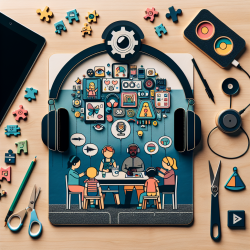Introduction
In the wake of the COVID-19 pandemic, the mental health and self-regulation skills of young children have come under increased scrutiny. The recent literature review titled Using Mindfulness-Based Interventions to Support Self-regulation in Young Children: A Review of the Literature provides compelling insights into how mindfulness-based interventions (MBIs) can be leveraged to support self-regulation in early childhood settings.
The Importance of Self-Regulation
Self-regulation, defined as the ability to control emotions, behavior, and attention, is crucial for children's social competence, academic success, and overall well-being. Research indicates that children with poor self-regulation are at higher risk for disruptive behaviors, peer rejection, and lower academic achievement. Thus, fostering self-regulation skills during early childhood is essential.
Mindfulness-Based Interventions: An Overview
Mindfulness practices, which include meditation, breath work, and yoga, have been shown to reduce stress and promote emotional regulation. The literature review examined 18 studies conducted between 2010 and 2021, focusing on the impact of MBIs on young children's self-regulation skills. The studies reviewed involved diverse participants across socio-economic levels and cultures, highlighting the global applicability of these interventions.
Key Findings
- Effectiveness: MBIs were found to have positive effects on cognitive, emotional, and behavioral self-regulation. Children in need of additional support, such as those with developmental delays, benefited the most.
- Program Variability: The studies revealed a variety of MBI programs, including yoga-based interventions and those combined with social-emotional learning (SEL).
- Duration and Frequency: Longer and more frequent MBIs were associated with greater improvements in self-regulation.
- Parental Involvement: Limited parental involvement was noted, suggesting a need for increased family engagement to reinforce mindfulness practices at home.
Implications for Practitioners
For practitioners, integrating MBIs into early childhood education can create a supportive environment for developing self-regulation skills. Training teachers in mindfulness practices and involving parents can enhance the effectiveness of these interventions. Practitioners are encouraged to explore MBIs further and consider their implementation in educational settings.
Conclusion
The review underscores the potential of MBIs to foster self-regulation in young children, particularly those facing additional challenges. By incorporating mindfulness into daily routines, educators can create a more emotionally supportive environment conducive to learning and development.
To read the original research paper, please follow this link: Using Mindfulness-Based Interventions to Support Self-regulation in Young Children: A Review of the Literature.










